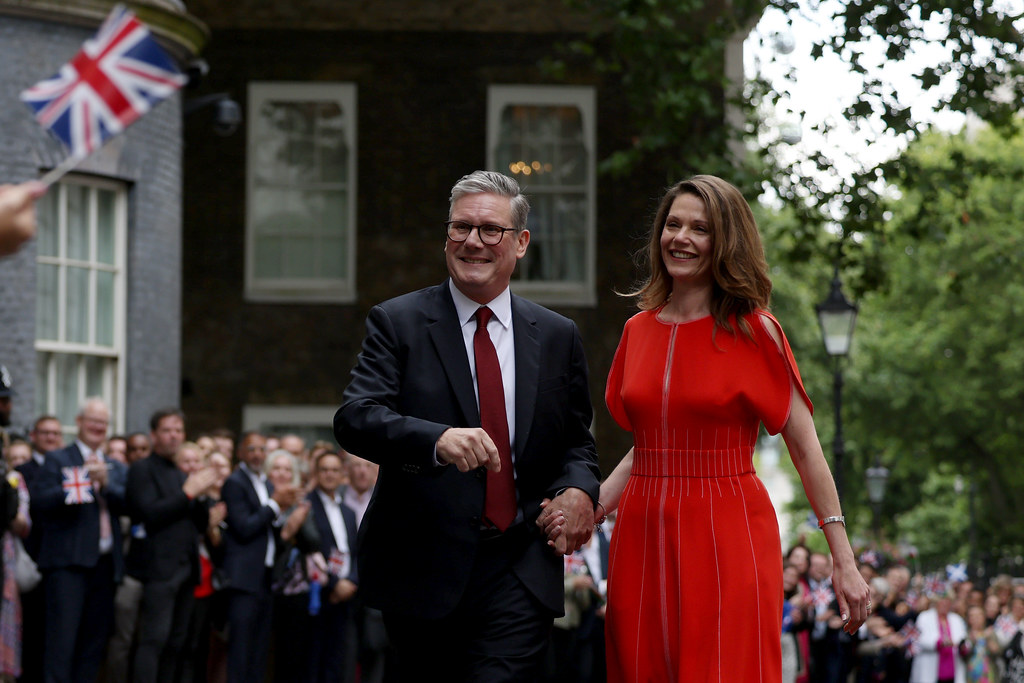The UK Elections 2024: A Simple Guide for Kids & Teens
The Labour Party has won the UK General Elections. They got the most seats in Parliament, and their leader, Keir Starmer, is now the Prime Minister.
The UK just had its big election on July 4th, 2024. Here’s a look at what happened, who the new leader is, and what we can expect in the future.
Before you learn about the UK election results, you need to know that the UK has two main parties: the Labour Party and the Conservative Party (we’ll tell you more about this later).
The 2024 UK Election Results

This year, the Labour Party won a huge victory. They got the most seats in Parliament, and their leader, Keir Starmer, is now the Prime Minister.
The Labour Party’s big win ended the long rule of the Conservative Party, which was led by Rishi Sunak. Labour won 409 seats, while the Conservatives won only 120 seats.
Keir Starmer is the new leader of the UK.
Quick Facts About Keir Starmer

Keir Starmer was born in London in 1962. Before he got into politics, he was a lawyer who worked on human rights cases. He was also the Director of Public Prosecutions, which means he was in charge of prosecuting major crimes in the UK.
Starmer became an MP in 2015 and started leading the Labour Party in 2020. He worked hard to make the party stronger and more united.
Mr Starmer’s Plans For the UK
As Prime Minister, Starmer wants to improve things like healthcare (making the NHS better), education, and helping people with the cost of living (making everyday things more affordable).
He also wants to invest in green energy to help fight climate change.
Understanding the Main Parties of the UK

The Labour Party
Who They Are
Founded: The Labour Party was founded in 1900.
What they believe in: They believe in social equality and aim to reduce the gap between the rich and the poor. They support public ownership of key services like healthcare and education.
Symbol: Their symbol is a red rose, which stands for socialism and social democracy.
What the Labour Party Stands For:
Healthcare: Improving the National Health Service (NHS) and making healthcare accessible for everyone.
Education: Ensuring quality education for all children and making higher education more affordable.
Economy: Investing in public services and infrastructure, supporting fair wages, and ensuring job security.
Environment: Tackling climate change by investing in green energy and sustainable practice
Earlier Prime Ministers from the Labour Party
Clement Attlee (1945-1951): Known for establishing the NHS.
Harold Wilson (1964-1970, 1974-1976): Focused on modernizing the economy.
Tony Blair (1997-2007): Introduced many reforms in education and healthcare.
Gordon Brown (2007-2010): Known for his economic policies during the global financial crisis.
Keir Starmer (2024-present): The current PM, focusing on public services, the economy, and climate change.
The Conservative Party
Who They Are
Founded: The Conservative Party, often called the Tories, was founded in 1834.
What they believe in: They believe in free-market policies, individual responsibility, and maintaining traditional institutions.
Symbol: Their symbol is an oak tree, representing stability and strength.
What They Stand For
Economy: Promoting free-market policies, reducing taxes, and encouraging private enterprise.
Healthcare: Supporting the NHS but also encouraging private healthcare options.
Education: Focusing on raising educational standards and giving more choices to parents and students.
Security: Strong national security and law enforcement policies.
Earlier Prime Ministers from the Conservative Party
Winston Churchill (1940-1945, 1951-1955): Led the UK during World War II.
Margaret Thatcher (1979-1990): Known as the “Iron Lady,” introduced many free-market policies.
John Major (1990-1997): Worked on economic stability and social reforms.
David Cameron (2010-2016): Held the Brexit referendum.
Theresa May (2016-2019): Worked on Brexit negotiations.
Boris Johnson (2019-2022): Led the UK out of the EU (Brexit).
Rishi Sunak (2022-2024): Tried to stabilize the economy post-COVID-19 but faced heavy losses in the 2024 election.

Better Your Child’s G.K. In 3 Minutes – Get This Free Newsletter
Get fun facts, simple and easy news, quizzes, and many other interesting things to read in your mailbox – for free! It’s what we call GK-on-the-go!
I Kid You Not now has a large readership across India and also parts of the world. If you want to write for us, you can submit your story here. You can also apply to become a news anchor. Apply here



Comments